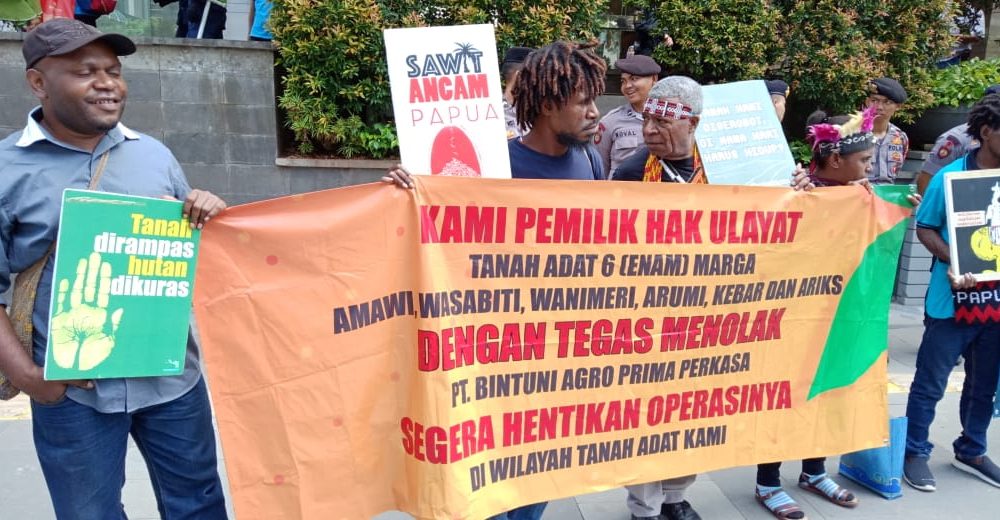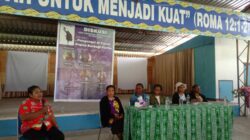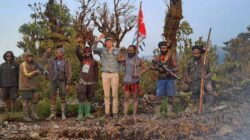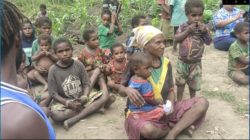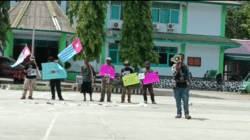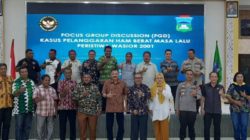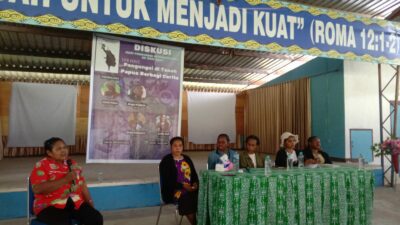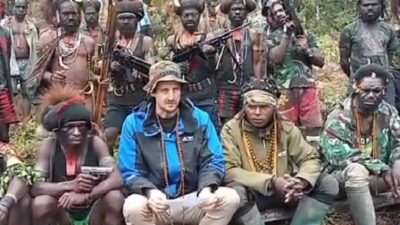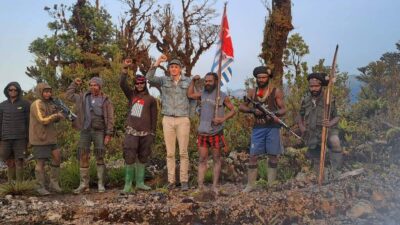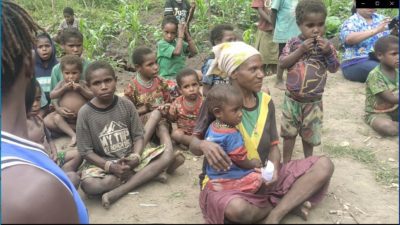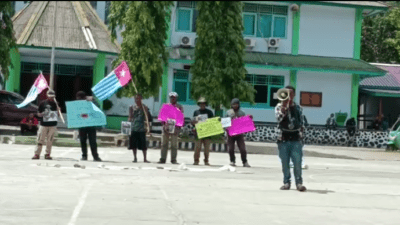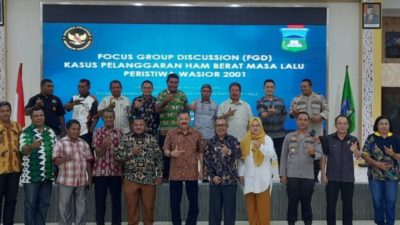
Nabire, Jubi – Representatives of five tribes from five regencies in the western and southern region of Papua visited government agencies, civil society and religious organizations in Jakarta concerning to the campaign of eight demands for the restoration of the rights of Papuan indigenous people and the protection of indigenous Papuan forests.
At present, we, the indigenous peoples and our villages as well as the customary forests where we live and make a living, are experiencing oppression, injustice and social tensions due to the development activities carried out by large-scale commercial timber plantation and logging companies. A statement from the five tribal representatives who supported by dozens of activists from different social backgrounds in that received by Jubi editors on Tuesday (11/13/2018).
Indigenous people and the land and customary forest owners are from the Mandobo tribe in Kao River, Boven Digoel Regency; Suku Malind in Muting, Merauke Regency; Mpur tribe in Kebar, Tambrauw Regency; Moi tribe in Klasouw and Klayili, Sorong Regency; Maybrat Tribe in Ikana, South Sorong Regency.
They experienced land grabbing by the company that involving the government through permit issuance and security protection which violated the principles of Free, Prior, Informed, Consent (FPIC). After the company operates, its activities result in damage and loss of forests and hamlets of community food sources.
Indigenous people also lose timber forest products, rattan, animals, medicinal plants, polluted clean water and other natural resources, which are the source of life and livelihoods of the people.
So that all threaten with loss of sovereignty and independence over knowledge and management of nature, all of which are priceless, they wrote.
In addition to environmental degradation, indigenous people who have long been guardians of land and forests experience intimidation and even violence and imprisonment. Further, they wrote that the primary right of freedom to speak, to assemble and express opinions is not guaranteed.
Eight demands
Referring to this condition, indigenous peoples accompanied by activists from Papuan and Jakarta civil society organizations brought eight demands to government agencies in Jakarta.
First, the government immediately acknowledges and values the autonomy and rights of indigenous Papuans on lands and forests to determine regulatory policies and programs in their customary territories.
Second, the central and regional governments review and revoke various agreements, business use rights, control permits and use of land and forest products that take place in indigenous territories, which are unilaterally granted to companies and ignore customary rights, harm the community and damage the environment, and contrary to the laws and regulations;
Third, the government conducts an environmental audit of Papua’s natural resource balance, related to the performance and impact of the activities of all large-scale plantation companies on the environment and socio-economic life, and does not provide an extension of environmental permits and fair law enforcement of the company;
Fourth, the government and companies are responsible for rehabilitating forest areas and sago hamlets affected by damage and loss, as well as providing incentives program to replace community losses;
Fifth, the government and companies to no longer use the police and military to secure the plantation areas and corporate offices in the field, stop the violent approach, practice intimidation, discrimination and physical violence in handling disputes, protests and public complaints;
Sixth, the government and companies to resolve any disputes by the legal system, customary law and customary legal institutions that exist in society wisely, peacefully, and impartially;
Seventh, the government to protect human rights defenders and environmental activists in Papua, and ensure that all perpetrators of crimes prosecuted in the public courts;
Eighth, emphasizing that Papua is not an empty land, and asking the government and companies to respect the rights of indigenous peoples in carrying out various development activities and the use of land and natural resources in Papua, by developing business based on knowledge and resources possessed by indigenous Papuans, and involving the comprehensive extent of indigenous peoples.
Responding the palm oil moratorium
The arrival of representatives of indigenous Papuans was also in response to the issuance of the Indonesian President’s Instruction No. 8/2018 about delaying and evaluating the licensing of palm oil plantations.
So far, we have discovered many problems and the critical impacts of the policies of the palm oil companies as well as their activities on the life of indigenous peoples and the environment in Papua. Operation permits and access to the land and forest areas, or the companies operate without legal documents such as AMDAL and HGU that destroy the sources of food and the environment and so on are a few examples. So what can the Ministry of Forestry and the Head of Forestry Agency in Jakarta do to follow up the regulation issued by the president (INPRES – President’s Instruction)? said Y.L Franky from Pusaka Foundation who advocate the rights of indigenous peoples when contacted by Jubi on Tuesday (11/13/2018). (*)
Reporter: Zely Ariane
Editor: Pipit Maizier


